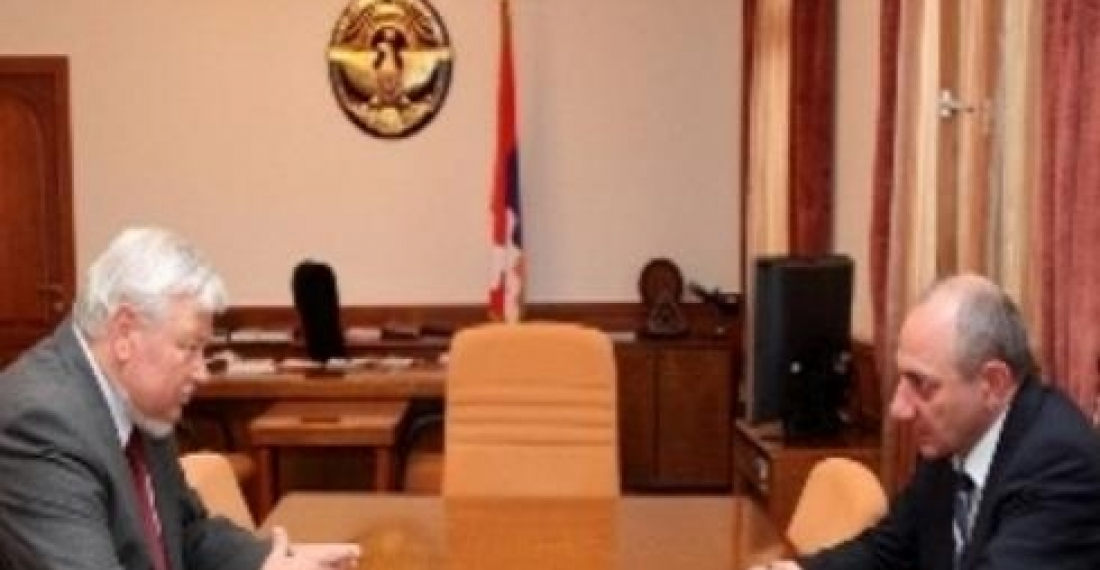Государственный секретарь США, Хиллари Клинтон, заявила о "новых подходах" к урегулированию нагорно-карабахского конфликта, она сказала, что обсудила это с лидерами Армении и Азербайджана во время своего визита в регион, который закончился вчера. Выступая в Баку на совместной пресс-конференции с министром иностранных дел Азербайджана, Эльмаром Мамедъяровым, Клинтон говорила о гибели армянских и азербайджанских солдат на линии фронта в последние дни.
"Больно думать об этих погибших молодых солдатах и о других погибших, нет военного решения этому конфликту. Мы скорбим о бессмысленной гибели, как азербайджанцев, так и армян. Мы должны чтить их смерти и обязать себя к миру и сделать все, что в наших руках, как можно быстрее, чтобы продолжить путь к миру. Я думаю, что примерно через две недели состоится встреча между двумя министрами иностранных дел, которые встретятся с сопредседателями Минской группы. И мы рассмотрим некоторые новые подходы, которые я имела возможность обсудить с министрами иностранных дел и президентами. Уже 2012 год. Настало время решить этот вопрос, и я сделаю все от меня зависящее, и я пообещала обоим президентам способствовать решению конфликта."
Клинтон ранее провела переговоры с президентом Азербайджана, Ильхамом Алиевым, министром иностранных дел, Эльмаром Мамедъяровым, и представителями организаций гражданского общества.
Однако, идея "нового подхода" к урегулированию конфликта была немедленно отвергнута руководством самопровозглашенной Нагорно-Карабахской Республикой (НКР). Выступая в Степанакерте, пресс-секретарь руководства НКР отметил, что эти новые подходы не актуальны.
Пресс-секретарь президента Карабахской Республики, Давид Бабаян, сообщил NEWS.am "После того, как Азербайджан грубейшим образом нарушил режим прекращения огня, заявления госсекретаря США Хиллари Клинтон о новых подходах к урегулированию нагорно-карабахского конфликта не совсем актуальны.", По данным агентства Бабаян сказал: "Азербайджан продолжает нарушать режим прекращения огня, убивать армянских солдат, но одновременно является временным членом Совета безопасности ООН. Да это ведь абсурд. США должны дать ситуации более реалистичную оценку и изменить свою позицию в данном вопросе, что, вероятно, и произойдет." "Сегодня США должны обращать больше внимания на сохранение режима прекращения огня, оказывать давление на Азербайджан в этом направлении. Другие предложения на данный момент не актуальны", добавил он.
В то же время специальный представитель председателя ОБСЕ по урегулированию карабахского конфликта, посол Анджея Каспршик, вчера встретился в Степанакерте с президентом НКР, Бако Саакяном. Обсуждение было сосредоточено главным образом на ситуацию на линии фронта. Армянские и азербайджанские источники сообщают, что ситуация остается напряженной с регулярными перестрелками.
Источник: commonspace.eu по материалам пресс-службы госдепартамента США и News.am
Фото: Президент самопровозглашенной Нагорно-Карабахской Республики на встрече с представителем ОБСЕ, послом Анджея Каспршиком, 7 июня 2012 года.







